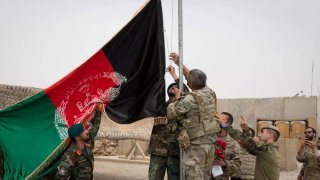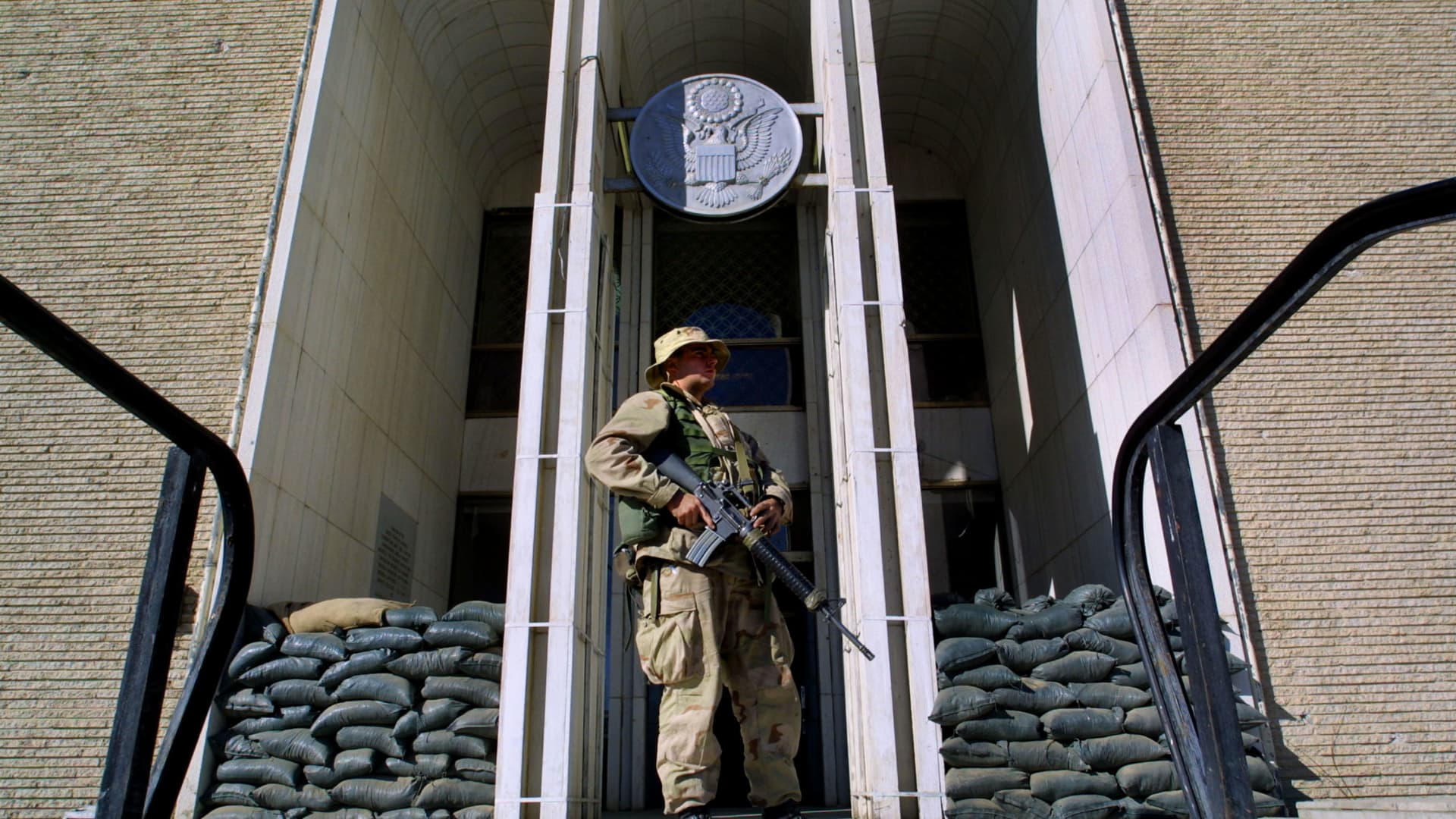
- The measure passed in a 366-46 vote and will now go to the Senate.
- Afghans who worked with U.S. troops as interpreters, drivers and other positions will no longer have to undergo a medical examination in Afghanistan to qualify for a special immigrant visa, or SIV.
- Instead, they will be allowed to get an examination in the U.S. within 30 days of their arrival.

The House approved legislation Tuesday that will speed up the visa process for Afghans who worked for the American military or NATO to come to the U.S.
The measure passed in a 366-46 vote and will now go to the Senate.
Get top local stories in DFW delivered to you every morning. >Sign up for NBC DFW's News Headlines newsletter.
Under the legislation, Afghans who worked with U.S. troops as interpreters, drivers and other positions will no longer have to undergo a medical examination in Afghanistan to qualify for a special immigrant visa, or SIV. Instead, they will be allowed to get an examination in the U.S. within 30 days of their arrival.
Many Afghans have been forced to travel long distances to get the medical examination at a single clinic in Kabul, which is costly, dangerous and a "serious delay" in the visa process, according to a statement introducing the legislation in May. Waiving the requirement in Afghanistan is expected to expedite the SIV process and ensure that Afghans can get a medical examination safely.
The legislation is the first of a series of bipartisan bills that aims to ease the visa process under the Afghan SIV Program established in 2009 and protect Afghans and their families who face the threat of retribution from the Taliban. Reps. Jason Crow, D-Colo., and Brad Wenstrup, R-O.H., introduced the legislation in May.
Money Report
"We cannot allow a slow bureaucracy to cost the lives of Afghans that served alongside our men and women. … In combat and in a war zone, every hour matters. Minutes seem like hours, days like week. A month will save many, many lives," Crow said in a statement released Tuesday.
A separate bill introduced by Crow and members of the Honoring our Promises Working Group earlier this month would increase the Afghan SIV cap by 8,000 visas and remove certain application requirements, including the "credible sworn statement" that requires applicants to prove that they face a threat for working for the U.S. government. The bill is set to be voted on in the House as early as this week.
Earlier this month, the U.S. Embassy in Kabul was placed on lockdown as Covid cases surge in Afghanistan, pushing the nation's fragile health care system to its limits and hampering the visa status for thousands of Afghans who assisted the U.S. military through the conflict.
Lawmakers on Capitol Hill have previously raised concern on whether the backlog of more than 10,000 Afghan translators and their families would be cleared before the remaining U.S. troops withdraw from the war-weary country.

Last week, the Pentagon said it surpassed the midpoint in its task of withdrawing troops and equipment out of Afghanistan.
The U.S. military has removed the equivalent of approximately 896 loads of material flown out of the country by large cargo aircraft, according to an update from U.S. Central Command.
Approximately 15,900 pieces of equipment that will not be left to the Afghan military have also been handed over to the Defense Logistics Agency for destruction. The U.S. has officially handed over six facilities to the Afghan military.
Biden announced in April a full withdrawal of U.S. troops from Afghanistan by Sept. 11, which would end America's longest war.
Biden's withdrawal timeline breaks with a proposed deadline brokered last year by the Trump administration with the Taliban. According to that deal, all foreign forces would have had to leave Afghanistan by May 1.
The removal of approximately 3,000 U.S. service members coincides with the 20th anniversary of the Sept. 11 terrorist attacks, which spurred America's entry into lengthy wars in the Middle East and Central Asia.
Army Gen. Mark Milley, chairman of the Joint Chiefs of Staff, told the Senate Armed Services Committee on June 17 that "planning is ongoing" to safeguard Afghans who served alongside U.S. and NATO troops.
The nation's top-ranking military officer added that the U.S. military was capable of carrying out any request as the State Department works through the thorough visa process for eligible Afghans.
—CNBC's Amanda Macias contributed reporting.






